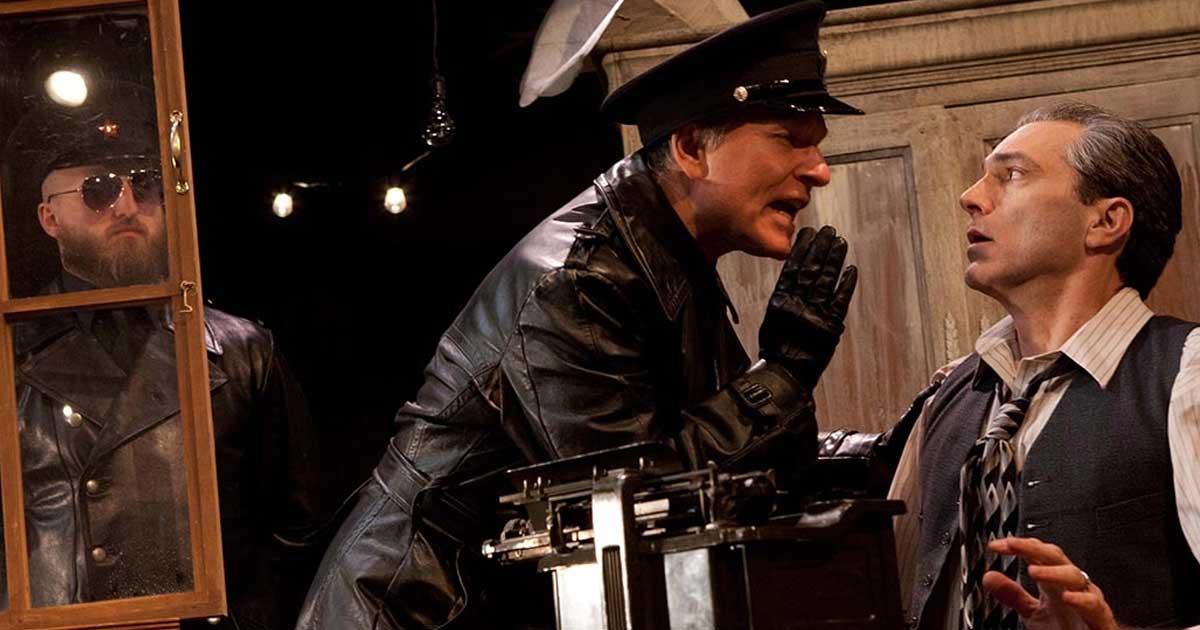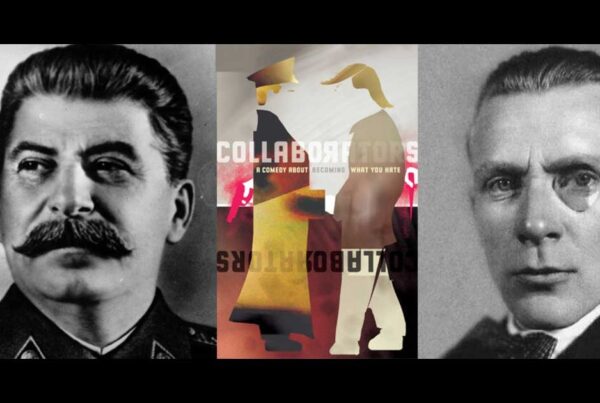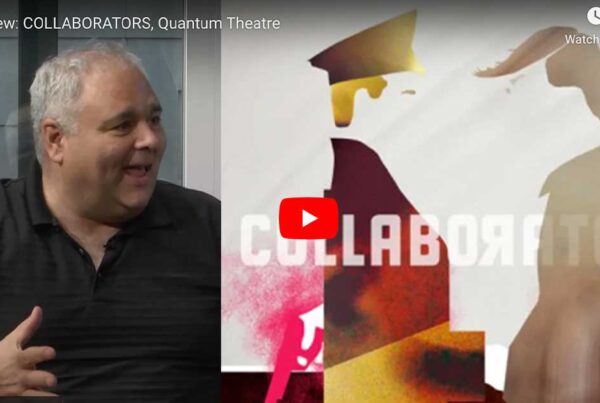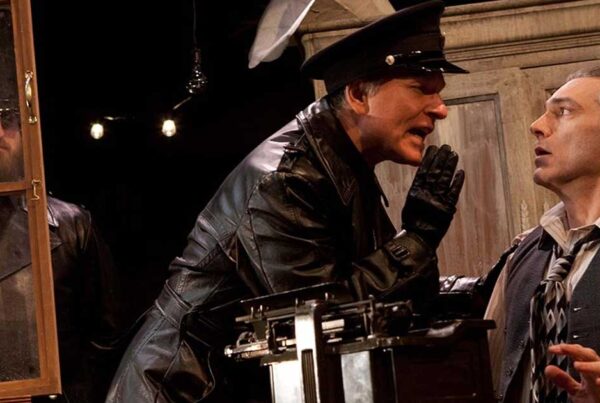
Tribune-Review – The opening scene of “Collaborators” sets the tone of this black comedy:
Russian playwright Mikhail Bulgakov and his wife are in bed, sleeping. There’s a knocking that slowly gets louder and grows to a thumping sound. Bulgakov searches for the source of the noise, which seems to be coming from the wardrobe.
The door suddenly opens and Bulgakov shrieks at the sight of Joseph Stalin jumping out. A Benny Hill-like chase ensues with comic music adding to the spectacle of Stalin maliciously swinging a typewriter at Bulgakov.
At turns funny and menacing, the play is based on a true story, but easily moves from reality to the surreal as Bulgakov struggles to deal with the nightmare of his life under censorship and political terrorism.
In 1938, during the time of the Great Purge, Stalin gives Bulgakov a deal: Write a flattering play about Stalin the hero, and he will be allowed to produce his own play.
“It’s a fascinating story,” says Karla Boos, artistic director of Quantum Theatre, which presents “Collaborators” through April 30 in East Liberty. “The playwright makes a deal with the devil. And it’s a challenging situation for an artist to be in.”
Director Jed Harris puts it this way: “How much of your artistic soul will you sell to save your artistic soul?”
As playwright John Hodge’s first play, “Collaborators” caused quite a sensation, winning the 2012 Olivier Award for best new play. Movie fans know his work as the screenwriter of “Trainspotting” and “Shallow Grave.” His sequel, “T2: Trainspotting,” opened March 31, a timely coincidence to Hodge’s play opening here.
“It’s a tour de force for two actors,” Boos says. “And we have two great ones that are very well known to everybody — Marty Giles as Stalin and Tony Bingham as Bulgakov. They’re like wonderful opposites.”
Stalin is funny, while Bulgakov is more given to dry humor.
“It’s a big cast that tells a pretty broad, fascinating story about not just the two of them, but what’s happening right at the moment of the purge and how it affected artists,” says Boos of the cast of 11.
Boos had been attracted to the play for some years before she brought it to Quantum, hoping it might entice respected director Harris. The longtime Carnegie Mellon University teacher and director came with an advantage beyond his personal talent.
“When Jed directs, there are wonderful, wonderful design colleagues of his who want to work for him,” Boos says. “So I knew I would also stand to attract these fabulous people who are our design team.”
They include costume designer Susan Tsu, scenic designer Narelle Sissons, Todd Brown on lighting and Joe Pino on sound.
Boos insists it was not the current political situation in this country that drew her to “Collaborators.” The play had been on her radar for three or four years.
But, she says, “We do feel the timing of this, when there’s talk of eliminating any support for artists, for journalism, for public broadcasting, we do feel that we are looking at this from a contemporary, real, frightening world.”




